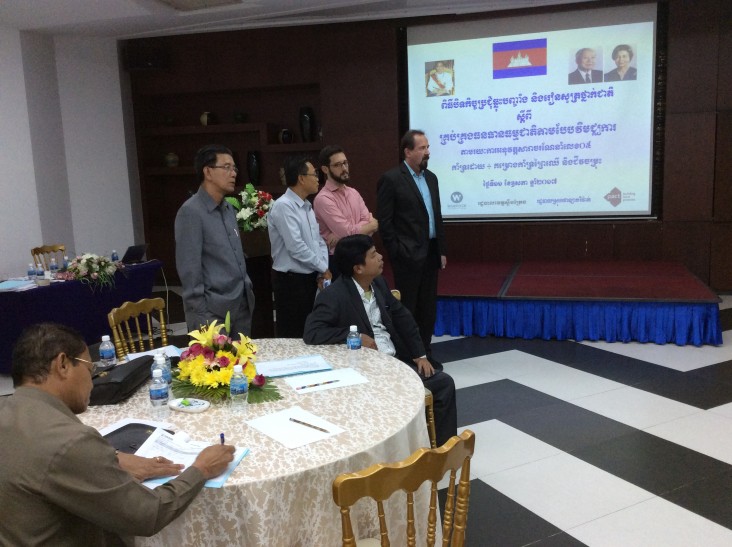
(as prepared for delivery)
- Your Excellency Ngan Chamroeun, Under Secretary of State Ministry of Interior and Deputy Head of the National Committee for Sub-National Democratic Development Secretariat
- Development partners
- Ladies and Gentlemen
On behalf of USAID and the Supporting Forests and Biodiversity Project, we thank you for participating in this important meeting today. It was an active and constructive discussion about the management of forest resources in Cambodia - especially at the community level.
We are pleased to see that participants here today represent a variety of perspectives and backgrounds. These include community development groups; civil society organizations; the Ministry of Interior; the Ministry of Environment; the Ministry of Agriculture, Forestry, and Fisheries; the National Committee of Sub-National Democratic Development; provincial and district authorities.
Having all of these valuable voices represented at the same table is critical to our joint objective of protecting Cambodia's natural resources. The experiences and issues that we discuss today around managing natural resources, co-patrolling, and working with forest communities is in direct support of the Royal Government of Cambodia’s urgent call for the necessary measures to strengthen natural resource management. As we know, this was articulated in the release of Circular No. 5 in late 2016.
USAID is proud to support the natural resource management strategies that you discussed today because it demonstrates that we are not just looking to respond to discrete problems, but that we are working to strengthen the entire system that decides how natural resources are managed.
The local system is made up of many different stakeholders that have different relationships with one another. It follows a complex set of rules and laws and its players have a variety of roles and responsibilities. The work we are undertaking together is very powerful because we are making the entire system stronger.
If we can do this right and we clearly capture the lessons we are learning along the way, then this can have a strong impact on the management of natural resources in many districts all across Cambodia.
So what comes next? Our hope is that we can take the lessons learned from this initiative and continue to strengthen the systems that decide how decisions are made and how resources are invested in a very clear and systemic manner.
Our challenge is to take these experiences and find a way that our best actions can be sustained and replicated throughout the country. This will require sustainable resourcing, clear roles and responsibilities, and most importantly, a strong will to take action from all that are involved.
We once again want to thank you on behalf of USAID and the people of the United States for your strong commitment and willingness to address the complex challenges around managing Cambodia's natural resources. We applaud and congratulate you for your leadership and encourage you to keep up your efforts. Thank you also for taking the time out of your busy schedules to join us here today and to demonstrate the importance of learning and reflecting upon your experiences.
Let’s use what we’ve learned to improve our efforts to build a stronger Cambodia.
Thank You!
Related Speeches
- Remarks by Polly Dunford, Mission Director, USAID Cambodia, Launch Event of Feed the Future Cambodia Harvest II
- Remarks by Christina Lau, Deputy Director, Office of Public Health and Education, USAID/Cambodia, Opening Ceremony of the Kick-Off Workshop for “One Health Workforce”
- Remarks by Veena Reddy, Deputy Mission Director, USAID Cambodia, EPIC Showcase







Comment
Make a general inquiry or suggest an improvement.